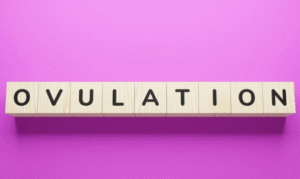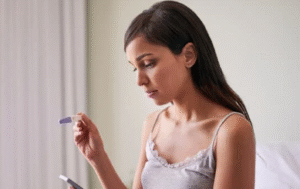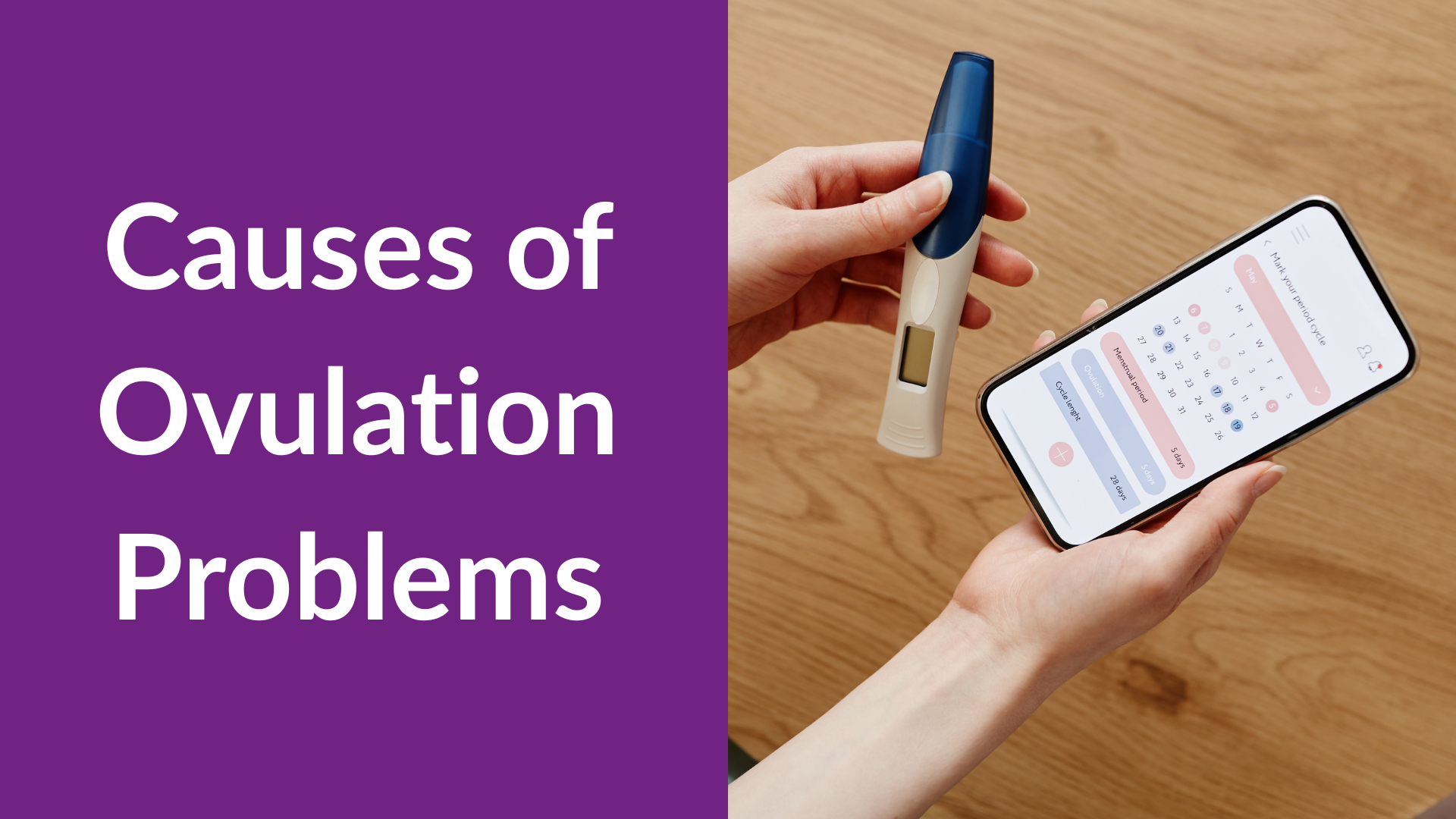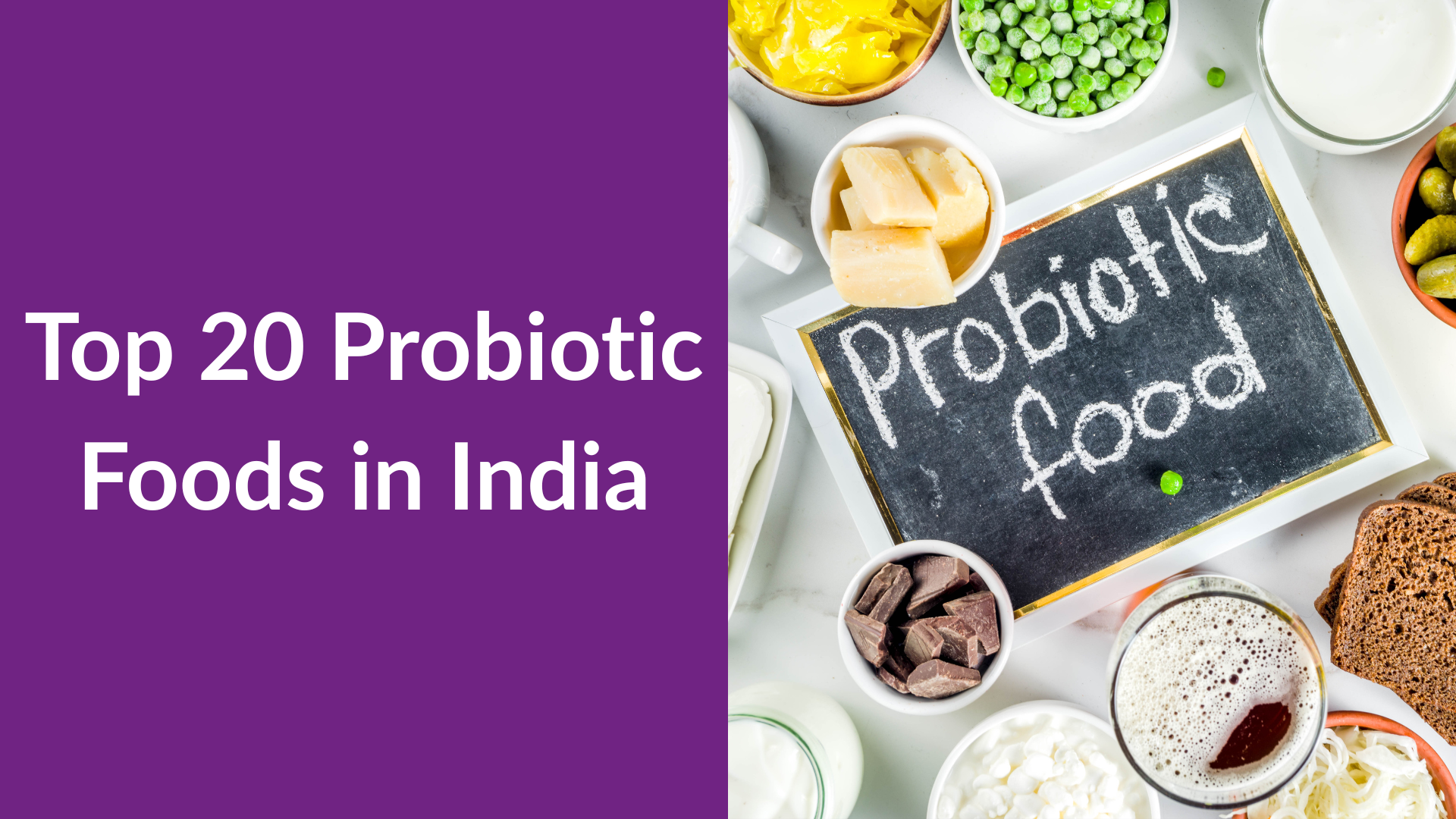Ovulation—the release of a mature egg from the ovary—is a critical step in the reproductive cycle. When ovulation doesn’t happen regularly or at all, it becomes a leading cause of female infertility. In fact, ovulation disorders account for nearly 25% of all infertility cases in women.
Understanding the causes of ovulation problems is essential for both early diagnosis and effective treatment. In this article, we explore the underlying hormonal, physiological, and lifestyle-related factors that can disrupt ovulation, and what can be done to manage them.
What Is an Ovulation Problem?


Ovulation issues occur when the ovary fails to release an egg or there is an irregular interval in the egg release during the menstrual cycle. These problems are typically classified as:
- Anovulation: Complete absence of ovulation
- Oligo-ovulation: Irregular or infrequent ovulation
Symptoms of ovulation problems may include:
- Irregular menstrual cycles (shorter than 21 or longer than 35 days)
- Missed periods (amenorrhea)
- Excessive bleeding or very light periods
- Difficulty conceiving
Causes of Ovulation Problems
Hormonal Imbalances
Hormonal disruptions are the most common cause of ovulation disorders. The brain and ovaries coordinate through a delicate hormonal feedback loop. Disruption in any part of this axis can affect ovulation.
a) Polycystic Ovary Syndrome (PCOS)
- PCOS is the most frequent cause of ovulation issues.
- Women with PCOS produce excess androgens (male hormones), which prevent the follicles in the ovaries from maturing properly.
- Symptoms: Excess facial and body hair, irregular periods, acne, increased weight, and multiple small cysts on the ovaries.
b) Hypothalamic Dysfunction
- The hypothalamus controls the release of GnRH, which triggers FSH and LH from the pituitary gland.
- Disruptions here (due to stress, excessive exercise, or underweight status) suppress GnRH, leading to poor LH/FSH signaling and anovulation.
c) Hyperprolactinemia (High Prolactin Levels)
- Elevated prolactin levels can inhibit estrogen production and ovulation.
- Often linked to benign pituitary tumors or medication side effects.
d) Thyroid Disorders
- Both hyperthyroidism (overactive thyroid) and hypothyroidism (underactive thyroid) can interfere with the menstrual cycle and suppress ovulation.
Lifestyle and Environmental Factors


Your daily habits and physical condition can strongly influence reproductive hormone balance.
a) Excessive Exercise
- High-intensity or endurance training, especially with low body fat, can lower estrogen levels and suppress ovulation.
b) Low Body Weight / Eating Disorders
- A body mass index (BMI) below 18.5 can interfere with hormone production.
- Anorexia or bulimia can lead to functional hypothalamic amenorrhea.
c) Obesity
- Excess weight alters insulin and androgen levels, particularly in women with PCOS, which further disrupts the hormonal axis.
d) Chronic Stress
- Prolonged emotional stress increases cortisol, which in turn inhibits GnRH production and ovulation.
e) Exposure to Toxins
- Environmental chemicals like pesticides, BPA, and heavy metals may affect endocrine function and ovulation.
Medical Conditions
a) Primary Ovarian Insufficiency (Premature Menopause)
- Occurs when the ovaries stop functioning before age 40.
- Can result from autoimmune diseases, genetic conditions, or chemotherapy.
- Leads to low estrogen and absent ovulation.
b) Luteal Phase Defect (LPD)
- A short or weak luteal phase means the uterine lining may not be sufficiently prepared for implantation.
- May stem from low progesterone levels after ovulation.
c) Pituitary or Hypothalamic Tumors
- Noncancerous growths can disrupt hormonal signaling, preventing regular ovulation.
d) Diabetes and Insulin Resistance
- Insulin resistance (especially with PCOS) affects ovulation through excess androgen production.
- Uncontrolled diabetes can impair ovarian function.
e) Medications
- Drugs such as antidepressants, antipsychotics, steroids, and chemotherapy agents may interfere with ovulation and hormone regulation.
Diagnosing Ovulation Problems
A comprehensive fertility evaluation typically includes:
Menstrual History
- Irregular or absent periods are primary indicators of ovulation issues.
Ovulation Tracking
- Basal Body Temperature (BBT): A slight temperature rise indicates ovulation has occurred.
- Ovulation Predictor Kits (OPKs): Detect LH surge in urine.
- Cervical mucus monitoring: Changes in consistency may signal fertile window.
Ultrasound Monitoring
- Tracks follicle development and ovulation directly.
Blood Hormone Tests
- FSH, LH, Estradiol (to assess ovarian reserve)
- TSH and Prolactin
- Androgens (especially if PCOS is suspected)
- Progesterone (Day 21) to confirm if ovulation occurred
Pelvic Exam and Imaging
- Transvaginal ultrasound to check ovarian structure, follicles, and uterine health.
Treating Ovulation Problems


Lifestyle Modifications
- Weight normalization (gain or loss)
- Stress reduction techniques (yoga, CBT, mindfulness)
- Moderate exercise regimen
- Nutritional counseling
Ovulation Induction Medications
- Letrozole (Femara): First-line treatment for PCOS. Fewer side effects than clomiphene.
- Clomiphene Citrate: Stimulates FSH release; often used in women with PCOS or unexplained infertility.
- Metformin: Used for women with insulin resistance or PCOS; improves ovulatory cycles.
- Gonadotropin Injections: Contain FSH/LH; used in resistant cases. Requires monitoring to avoid OHSS.
- hCG Trigger Shot: Administered to time ovulation with intercourse or IUI.
Advanced Therapies
- IVF (In Vitro Fertilization): For women who do not respond to ovulation induction or have multiple fertility factors.
- Egg Freezing or Donation: For women with diminished ovarian reserve or early menopause.
Surgical Treatments
- Ovarian drilling (for PCOS)
- Polyp or fibroid removal
- Correction of congenital uterine anomalies
When to See a Fertility Specialist?
- You’re under 35 and haven’t conceived after 12 months of trying
- You’re over 35 and have tried for 6 months
- You have irregular periods, PCOS, or known thyroid/pituitary disorders
- You’ve had multiple miscarriages
Final Thoughts
Ovulation problems are a leading yet treatable cause of infertility. Early diagnosis and personalized treatment can help restore ovulatory function and improve your chances of conception. If you’re experiencing signs of ovulatory dysfunction or have concerns about fertility, consulting a reproductive endocrinologist can provide clarity and a customized care plan.




